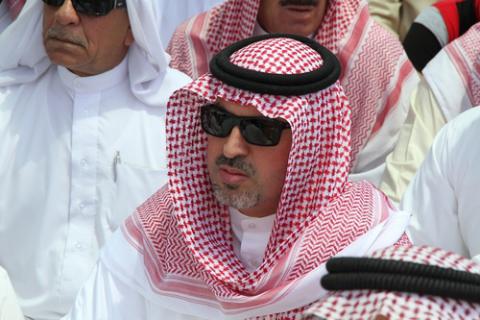
The UN Working Group on Arbitrary Detention (WGAD) has issued a decision calling the detention of Ahmad Al Alwani, opposition member of the Iraqi Council of Representatives, arbitrary since he “was targeted and discriminated against for his Sunni background and political opinions and activities”. Al Alwani had been arrested in December 2013 and secretly detained for a month during which he was tortured in order to force him to sign a self-incriminating statement. Following a trial marred with irregularities, the Central Criminal Court sentenced him to death. “Al Alwani’s flawed arrest, trial, conviction and death sentence is part of the Government’s attempt to suppress the legitimate criticism of widespread corruption and the grievances generated by its discriminatory and abusive use of counter-terrorism measures to marginalise its Sunni citizens”, the UN group said.
Background
A strong voice against the Iraqi government’s marginalisation of Iraqi Sunnis, on 27 December 2013, Al Awani held numerous meetings with the provincial authorities of Ramadi – the theatre of a one-year long protest of Sunnis against discrimination by the authorities – in order to ease the tensions between demonstrators and the government. The following night, Al Alwani was arrested in his house during a violent raid.
On 29 December, the Iraqi Minister of Defence declared that Al Alwani would only be released if the protests were to cease within two days. Nevertheless, clashes continued between demonstrators and the Iraqi army, while some 40 members of Parliament threatened to resign if the army did not withdraw and Al Alwani was not released.
Al Alwani remained detained in secret for one month, during which he was severely tortured to be forced to sign self-incriminating statements. He was then referred to the Central Criminal Court (CCC) and denied the assistance of a lawyer, since the latter withdrew from the case due to harassment by the authorities. In November 2014 and May 2016, Al Alwani was sentenced to death on the basis of his confessions extracted under torture for, respectively, “murder” and “incitement to sectarianism” – a crime according to Iraq Anti-Terrorism Law No. 13 of 2005 – because of his speeches during the Ramadi sit-ins.
“Targeted and discriminated against for his Sunni background and political opinions and activities”
Following Alkarama’s complaint to the WGAD, on 28 April 2017, the UN experts found numerous violations of international human rights law, including the International Covenant on Civil and Political Rights (ICCPR) – to which Iraq is a party since 1971 –, rendering Al Alwani’s detention arbitrary.
In particular, the WGAD concluded that “Al Alwani was denied of his immunities as a member of the Iraqi Parliament” in violation of Iraqi Constitution and international human rights law. The UN experts also recalled that “the use of confessions extracted from torture is prohibited” and that “capital punishment may be imposed only when the guilt of the person charged is based upon clear and convincing evidence leaving no room for an alternative explanation of facts. This is hardly the case in relation to the trial of and conviction of Mr Al Alwani.”
The WGAD also recognised that Al Alwani’s “conviction and death sentence […] for his speeches at the sit-in square in Ramadi further violate his right to freedom of expression and peaceful assembly”, while criticising the vagueness of Iraq Anti-terrorism Law.
Finally, the WGAD carefully considered the context of Al Alwani’s arrest, noting that “the proposal by the then-Defence Minister Saadoun Al Dulaimi to release Mr Al Dulaimi in exchange of the end of the Ramadi protests adds credibility to the charges of religious or politically motivated persecution”, and that national elections were only four months ahead when so that he could not campaign for himself or colleagues from his block.
For more information or an interview, please contact media@alkarama.org (Dir: +41 22 734 1008).
